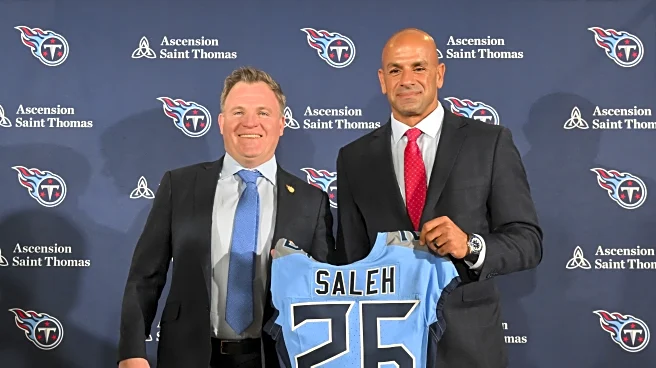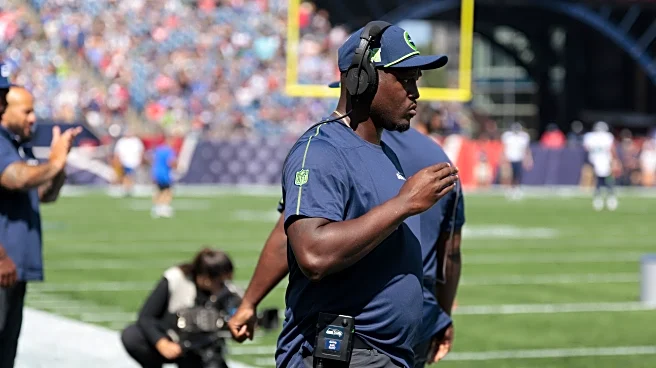What's Happening?
Dallas Mavericks rookie Cooper Flagg has been moved off the point guard position by head coach Jason Kidd, allowing him to find more comfort on the court. Flagg expressed the challenges and pressure associated
with the point guard role, noting that he wasn't initially ready to handle the responsibilities. With Kyrie Irving sidelined due to a torn ACL, the Mavericks signed D'Angelo Russell to strengthen their backcourt. Kidd initially intended to play Flagg at point guard to challenge him, but has since adjusted the lineup, starting Russell or Brandon Williams in recent games. Flagg's performance has improved since the change, with increased shooting accuracy and scoring, indicating a positive impact from the tactical shift.
Why It's Important?
The decision to adjust Cooper Flagg's role is significant for the Dallas Mavericks as they navigate the absence of their primary playmaker, Kyrie Irving. By relieving Flagg of point guard duties, the team can optimize his strengths and potentially enhance overall performance. This move reflects strategic flexibility by the coaching staff, aiming to develop Flagg's skills without overwhelming him. The improved statistics following the change suggest that Flagg is better suited to contribute in a different capacity, which could influence the team's success in the competitive NBA landscape. The development of young players like Flagg is crucial for the Mavericks' long-term prospects.
What's Next?
As the Mavericks continue to adjust their lineup, the focus will be on integrating Flagg into a role that maximizes his potential while supporting the team's immediate needs. The coaching staff may explore further tactical changes to accommodate the evolving dynamics of the roster. Monitoring Flagg's progress and performance will be essential, as he adapts to the demands of the NBA. The team will also need to strategize around Kyrie Irving's recovery and eventual return, ensuring a seamless transition and maintaining competitive momentum.
Beyond the Headlines
The shift in Cooper Flagg's role highlights broader themes in player development and management within professional sports. It underscores the importance of balancing immediate team needs with long-term player growth. The decision reflects a nuanced approach to coaching, where adaptability and responsiveness to individual player challenges are prioritized. This case may serve as a reference for other teams managing young talent, emphasizing the value of strategic role adjustments in fostering player confidence and performance.










